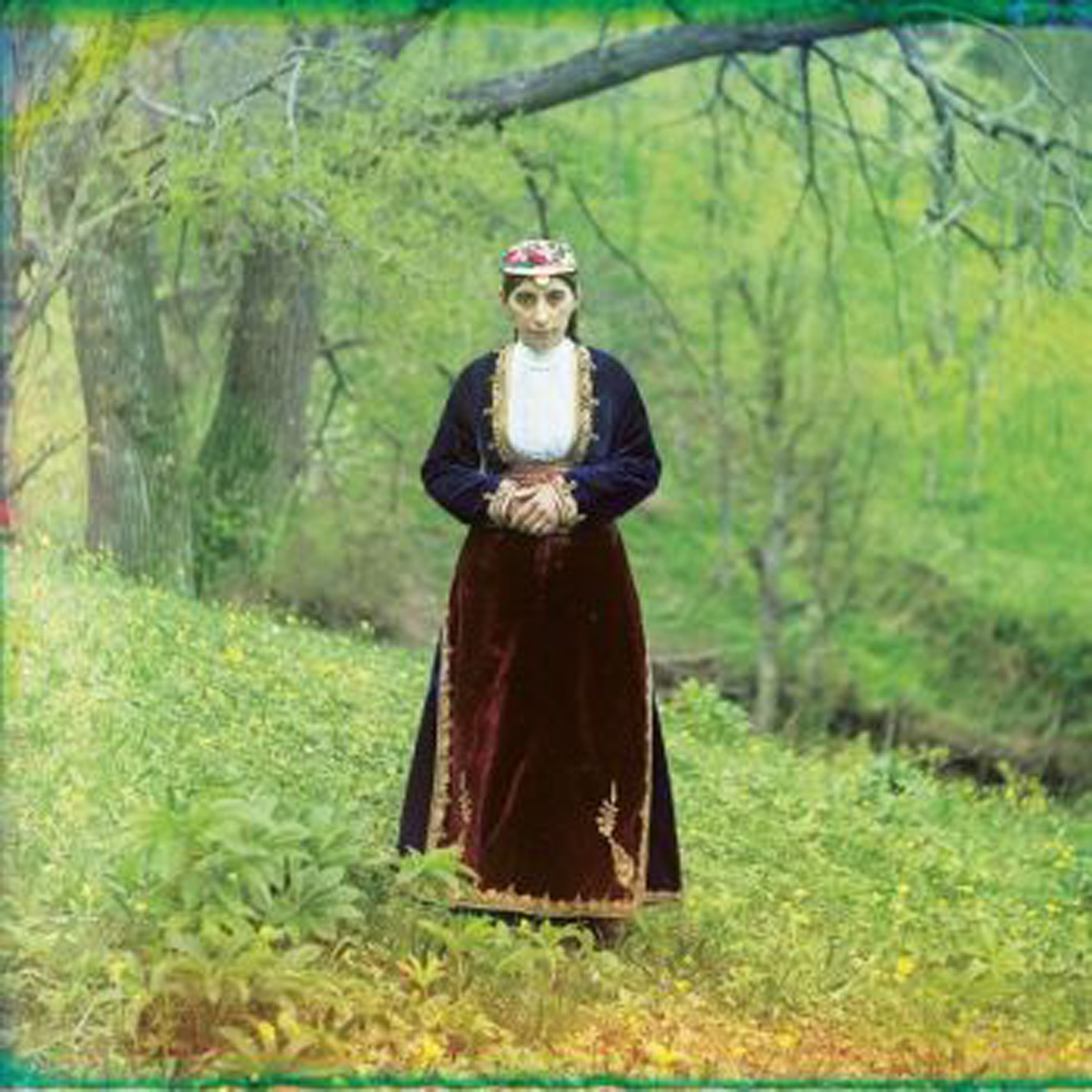
Geir Jenssen is my kind of artist: the kind that now only surfaces when he has something truly new or significant to convey.  Ending a five-year hiatus, Departed Glories is a radical departure from past Biosphere releases, all of which were very much of their time.  Departed Glories, on the other hand, ambitiously takes aim at timelessness instead.  Taking inspiration from the forests around Krakow, the photography of Sergei Prokudin-Gorsky, the story of medieval Polish mystic Bronislawa, and some research into Polish and Ukrainian folk music, the otherworldly, mysterious, and hallucinatory vignettes of Departed Glories jettison all obvious traces of Jenssen's contemporary electronic music past.  I am actually quite fond of that past, mind you, but the best pieces on Glories are on a completely different level altogether.  This is a major creative breakthrough and easily one of the most inspired albums of the year.
Though it was a convergence of several different interests and occurrences that ultimately led Jenssen to make such an uncharacteristic album, it was his daily walks along the Wolski forest during his brief time in Krakow that set the whole process in motion.  Initially, it was a place of fascination primarily because it was a beautiful place that had also been the site of mass executions during WWII, but his research into the region eventually led him to the story of Bronislawa, a 13th century nun of noble birth who eluded a Tartar raid by hiding in the forest with her fellow nuns.  While she allegedly saw a vision of the Virgin Mary during her lifetime, her perceived supernatural powers apparently remained effective long after her death, as she was beatified for protecting Zwierzyniec from cholera in the 1800s.  As interesting as her posthumous exploits are, Janssen was most struck by her time spent hiding in the forest and tried to imagine what sort of "music" a terrified nun hiding from a bloodthirsty horde might conjure up in her head.  Geir's concurrent discovery of Sergei Prokudin-Gorsky’s photography provided further inspiration, particularly the image used for the album cover, though it actually portrays an Armenian woman in Turkey several hundred years later.  While it may be a different person in a different time and place, Geir felt it beautifully evoked the same atmosphere as Bronislawa’s frightened forest exile.  Departed Glories attempts to capture that same haunted and solitary atmosphere and succeeds wonderfully.
Naturally, Geir came to the conclusion that his usual tactics were quite unsuited for conjuring up mysterious and phantasmal scenes from a medieval forest, which is what started him on his folk music research.  That folk music, spanning Russia and Eastern Europe, ultimately ended up being the base material used to form the album.  However, while Departed Glories is constructed from hundreds of such snippets, they have all been collaged and processed into ghostly unrecognizability, aside from some unexpected guitar chords in the otherwise otherworldly and Siren-esque "Aura in the Kitchen with the Candlesticks."  There are also a few pieces where Geir returns a bit to his old comfort zone, blurring and stretching his samples into warm ambient/drone music, though he always manages to let some hissing, spectral ominousness creep into the periphery.  For the most part, however, Jenssen evokes nothing less than a beautiful nightmare of hazy and angelic female voices, ominous thrums, and richly disconcerting textures.  In fact, the best moments sound far more like field recordings of a haunted and mist-shrouded forest than anything resembling a structured composition by a human.  The transfiguration of Geir Jenssen is probably most complete with the gorgeous "Sweet Dreams Form a Shade," where a shimmering and precariously undulating chorus of heavenly voices sounds like nothing less than a ripple in the very fabric of reality.  Later, Jenssen unleashes yet another stunner in the form of the throbbing and subtly menacing "You Want to See It Too," which transforms similarly angelic voices into something far more unsettling and wraithlike.
The sole minor flaw with Departed Glories is merely that there are probably a few more songs than necessary, though I would have a hard time deciding which songs might be worthy of the ax, as there is no obvious filler.  Naturally, there are some clear stand-outs like the aforementioned "Sweet Dreams" and "You Want to See It Too," but most of the other pieces are quite compelling in their own ways as well.  Some charms are more understated than others, however, so Departed Glories is very much a headphone album–in fact, it is a goddamn brilliant one.  It is so complexly layered, beautifully nuanced, artfully sequenced, and eerily evocative that I find myself more deeply appreciating new moments each time I dive into it.  In that regard, I suppose it is uncannily a lot like a dark, misty, and unfamiliar forest, so Geir gets bonus points for unexpectedly meta thematic consistency.  In any case, I was initially just going to proclaim that Departed Glories is easily the best album of Jenssen's career, but I am increasingly of the opinion that this is likely to be the best album of 2016 as well.  It admittedly takes some time and focused attention to unlock its full majesty, but that is time well-spent as far as I am concerned.  Departed Glories is a masterpiece.
 
Read More

